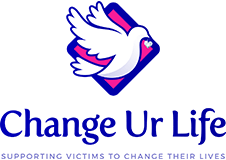It’s time to break the barrier
Underreporting of domestic abuse and low visibility of LGBT+ people within services is often a result of a range of specific barriers existing on a personal and systemic level, which prevent LGBT+ survivors from getting the help and support they need.
How Else Can I HelpUncovering the misconceptions
There are many myths surrounding partner abuse and some specific myths which directly relate to abuse in in relationships where one or more partners identify as LGBT+.
Some of the more common myths may suggest that:
- Partner abuse doesn’t happen among LGBT+ people.
- Partner abuse among LGBT+ people is not as serious in nature compared with experiences of their heterosexual cisgender peers.
- Partner abuse among LGBT+ people is almost always ‘mutual’.
- Partner abuse is about size and strength; for example, a gay male victim will be smaller and more effeminate and abusive lesbian will be more masculine.
- Women cannot/do not perpetrate partner abuse.
- Gay men can more easily protect themselves.
- Sexual abuse doesn’t happen in intimate relationships among LGBT+ people; a woman cannot rape another woman and men cannot be raped.
- LGBT+ people are more able to leave their abusers, e.g. because they are not married or don’t have children.
Statistics about Domestic Violence and the LGBTQ Community
43.8% of lesbian women and 61.1% of bisexual women have experienced rape, physical violence, and/or stalking by an intimate partner at some point in their lifetime, as opposed to 35% of heterosexual women.
26% of gay men and 37.3% of bisexual men have experienced rape, physical violence, and/or stalking by an intimate partner in their lifetime, in comparison to 29% of heterosexual men.
In a study of male same sex relationships, only 26% of men called the police for assistance after experiencing near-lethal violence.
In 2012, fewer than 5% of LGBTQ survivors of intimate partner violence sought orders of protection.
Transgender victims are more likely to experience intimate partner violence in public, compared to those who do not identify as transgender.
Bisexual victims are more likely to experience sexual violence, compared to people who do not identify as bisexual.
Change Ur Life has a dedicated part-time worker who is supporting victims of domestic abuse from the LGBTQ+ Community.
Call: 07495 825 762 Or Use the Live Chat facility to access support




